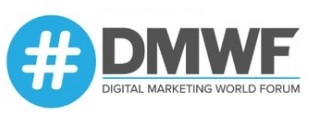
Aimee Stone Munsell, chief marketing officer at digital experience software provider Contentsquare, is a firm believer in the adage that a leader is only as good as their team. “A leader’s job is to make themselves obsolete,” she tells MarketingTech.

Realising the bluntness of that statement, Stone Munsell (left) laughs and clarifies. “What I mean by that is my job is to create at each level of management and leadership, to make the people underneath you successful and the organisation sustainable,” she adds. “It’s flipping the model of ‘I need to be vital for this organisation myself’ and realising that the way you’re most vital for the organisation, or your job, is to create an organisation and marketing campaigns that live without you.”
One thing which is certain is that marketers are more likely to suffer from itchy trigger fingers. The CMO is believed to enjoy – or endure – the shortest tenure among the C-suite. Research from Winmo in 2018 found the average job span for CMOs was 43 months, with the median 33 months. As this publication has previously explored, CMOs often have to justify their seat on the board, with jealous glances from the chief sales or revenue officer, seeing another cat in the litter tray, having to be fended off.
Yet there is another explanation afoot. Put simply, marketing encompasses so many disciplines, departments and products, that a world of experience is out there for ambitious professionals.
“I think there’s a lot to be said for what some people would call lateral moves,” says Stone Munsell. “I’ve definitely been ambitious and always looking for the next opportunity, and the next thing, but I also think as a part of that, whether it’s switching between client side and agency side, big or small company, or within your company, looking for those different experiences across whatever level you’re at is going to help you ultimately get better.”
Stone Munsell’s career has as a result encompassed many experiences, starting on the agency side before a stint at IBM – as did Information Builders’ Carol McNerney, another CMO profiled – alongside running her own business. Like McNerney, Stone Munsell was caught by the tech bug and didn’t look back.
“I had the opportunity to work in a lot of sectors and I learned a ton about marketing, marketing organisations, and other consumer goods companies,” she says. “But when I started working on technology I got completely hooked on it, because I believe in the power of great technology to change the world and to change the way we work – I really do.
“Once I started working in technology, nothing else seemed nearly as interesting or as important.”
Contentsquare’s platform analyses billions of different behaviours and visualises it, aiming to provide value for digital marketers, eCommerce teams, data and UX professionals alike. “Everything we’re doing is to empower the people that are creating the digital experiences to understand what’s happening and do a better job,” Stone Munsell explains. “It’s all about empowering brands to create a better experience.
“It’s super easy to create a website, create an app or a service, but we really haven’t empowered the people doing that creation to really understand how customers and end consumers are using the services they’re putting out, be able to make them better on a regular basis, and having that type of insight in the hands of everyone.”
So while the company offers its solutions targeting marketing, design, operations job roles and more, there’s a level of democratisation at play. Making insights and data ‘super visual and super easy’, this insight is no longer purely the domain of data scientists – as data touches all part of the business. Where Contentsquare can tangibly help, for instance, is in surfacing a piece of popular content which isn’t located in an easily accessible part of a company’s site.
“A lot of the value is about being able to understand customers right in the moment and understand the context of people visiting your site,” explains Stone Munsell. “For example, if we know customers are coming from mobile, they are coming from within a particular channel like Instagram, you need to be able to capture them in that context and be able to – and able to deliver – what they want in the moment.
“You can’t wait,” she adds. “You can’t submit a question to the data and see what comes back. You need to be able to see real-time, what’s happening on your site, what content is being consumed, where people are struggling, and where they are finding the information they need to be able to optimise those individual journeys.”
It is with this in mind that Contentsquare launched what it called the Digital Happiness Index this time last year. Fill out the appropriate form, and you get a score for each of your digital platforms, compared with industry benchmarks, as well as expertise and recommendations from Contentsquare glopped on top.
Stone Munsell notes the link, forged in research alongside the index, which compared the idea of ‘digital happiness’ with financial strength. “It’s really all about whether the customer is successful in managing and achieving their goals on the site,” she says. “Are they successful enough to want to come back? If there’s a score, you can track your progress on what is better for your site, and are you beating your customers’ goal – and we show that does ensure financial success and viability correlates to that over time.”
It’s not all about hard data, however. Speaking to Anna Griffin, CMO of Smartsheet, the importance of emotion in marketing was noted. Stone Munsell argues the vast majority of user behaviour is what she calls ‘between the cracks’.
“If you can see that someone is going back and forth between looking at your product list, then checking drill-down information about detail on a product and going back and forth, then you see that there’s a frustration,” she says. “Someone’s clicking over and over, then hovering away. We’re able to identify where they’re having struggle or success, and then you’re able to address that.”
The message however, remains that Contentsquare is a platform which aims to help everyone in the business chip in across projects with their newly-acquired data literacy. This ties in neatly with Stone Munsell’s advice for marketers.
“I see a lot of people concerned at every level about titles, and not about the leadership and the accomplishment of driving projects,” she says. “No matter what level you’re at or what the formal hierarchy is, it’s recognising where there’s an opportunity and a need in the business, and proactively stepping up to volunteer to help drive that or contribute to that project.”
Photo by Steve Johnson on Unsplash

Interested in hearing leading global brands discuss subjects like this in person?
Find out more about Digital Marketing World Forum (#DMWF) Europe, London, North America, and Singapore.





